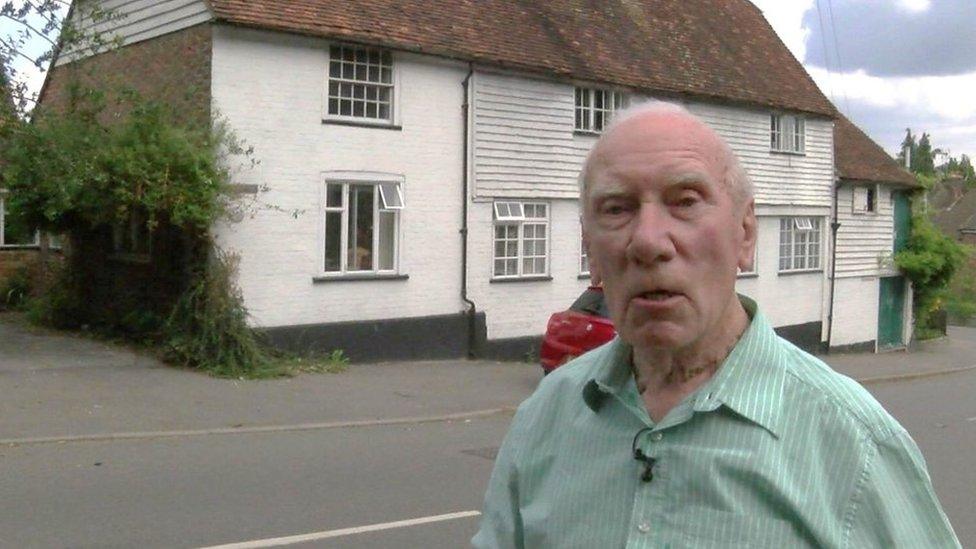World War Two: German president asks Poland to forgive Nazi 'tyranny'
- Published
Air raid sirens sounded in the early hours in Wielun and Westerplatte
German President Frank-Walter Steinmeier has asked Poland's forgiveness for Nazi "tyranny", 80 years on from the start of World War Two.
Mr Steinmeier and other world leaders are in Poland to commemorate the outbreak of the conflict.
Speaking in the capital, Warsaw, Mr Steinmeier apologised for the "horrific war" unleashed by Germany.
"This war was a German crime," he said in a speech.
His Polish counterpart, Andrzej Duda, and US Vice-President Mike Pence also delivered speeches in front of crowds and heads of state on Pilsudski Square.
Mr Duda denounced Nazi Germany's attack as "an act of barbarity", while Mr Pence praised Polish people, saying they "never lost hope".
Earlier on Sunday, two other commemorative events were held in the cities of Wielun and Gdansk, where the first German attacks of the war happened.
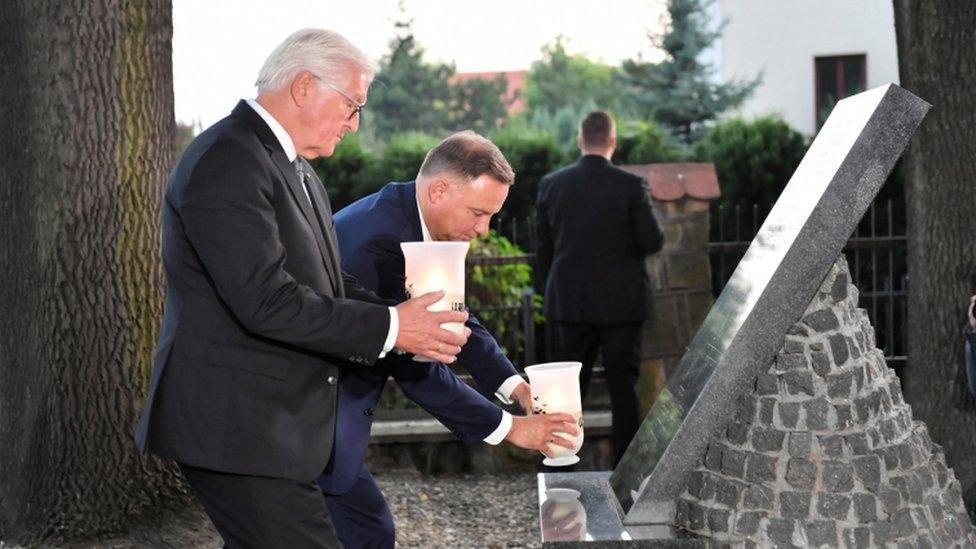
Mr Steinmeier and Mr Duda lit candles at a commemorative memorial
"Wielun was to show what kind of war it would be, that it would be a total war, a war without rules, a destructive war," Mr Duda said.
Later on Sunday, Mr Duda appeared to criticise Russia's annexation of Crimea from Ukraine in 2014, alluding to a recent "return of imperialist tendencies" in Europe.
In a warning to European leaders, Mr Duda said "turning a blind eye" to this amounts to "consent to further attacks".
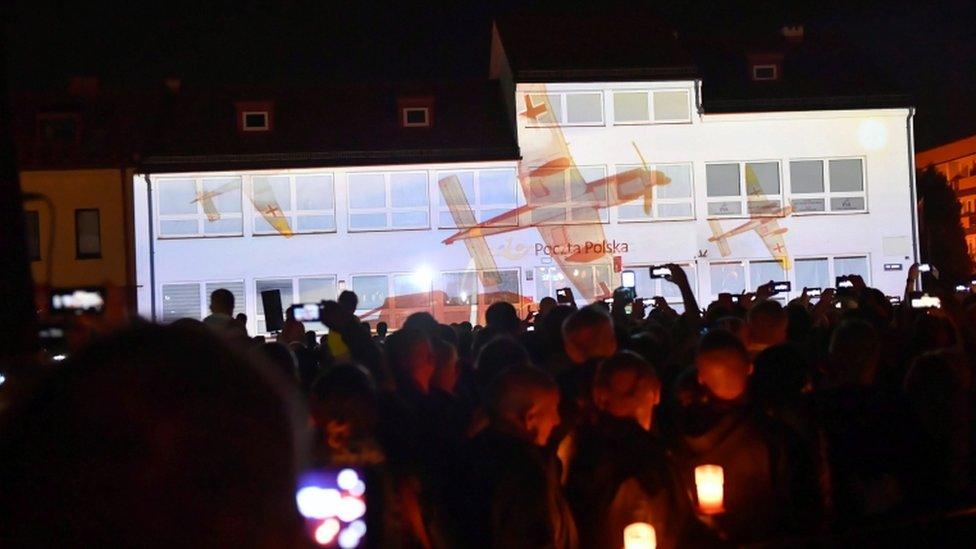
Wielun was the first Polish city bombed by Germany during World War Two
Poland suffered some of the worst losses of World War Two - about six million of its citizens were killed, up to half of them Jews.
Eighty years on, Poland is still demanding compensation from Germany for the death and destruction inflicted.
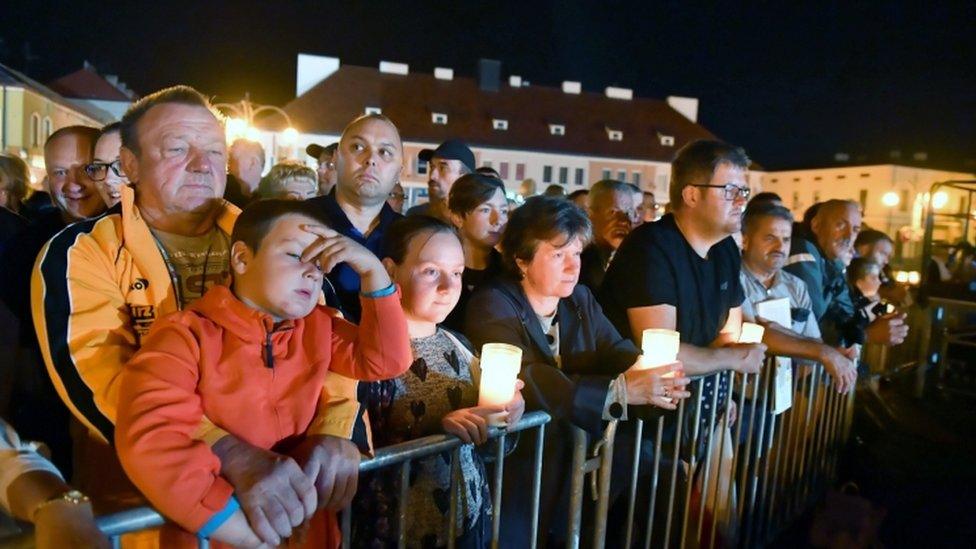
People held candles to mark the occasion at the ceremony in Wielun
Recent calls for reparations by Polish Prime Minister Mateusz Morawiecki, whose governing Law and Justice (PiS) party has been accused of fanning nationalist sentiment, have fuelled tensions with Germany.
A Polish parliamentary committee is still assessing the amount of compensation, but Germany argues the matter is settled.
How did World War Two start?
At dawn on 1 September 1939, the German Luftwaffe (air force) bombed the city of Wielun, a town with no military significance. Thousands of people are estimated to have died in the bombings, designed to sow terror among the civilian population.
Watch the moment Roger Calver, a World War Two evacuee, returned to his wartime home
After the attack, ordered by Nazi leader Adolf Hitler, Britain gave Germany an ultimatum to cease military operations.
When the ultimatum was ignored, Britain and France declared war on Germany on 3 September, igniting a six-year conflict that would kill tens of millions of people.
How is the anniversary being marked?
Three commemorative events were held on Sunday in Warsaw, Wielun and the former military post of Westerplatte, in the coastal city of Gdansk.
In Westerplatte, where Nazi German battleships attacked a Polish military base on 1 September 1939, Mr Morawiecki and European Commission Vice-President Frans Timmermans attended a dawn remembrance.
At the same time, Mr Steinmeier pleaded for "forgiveness" at a ceremony held in the Polish city of Wielun, where the first German bombs of the conflict fell.
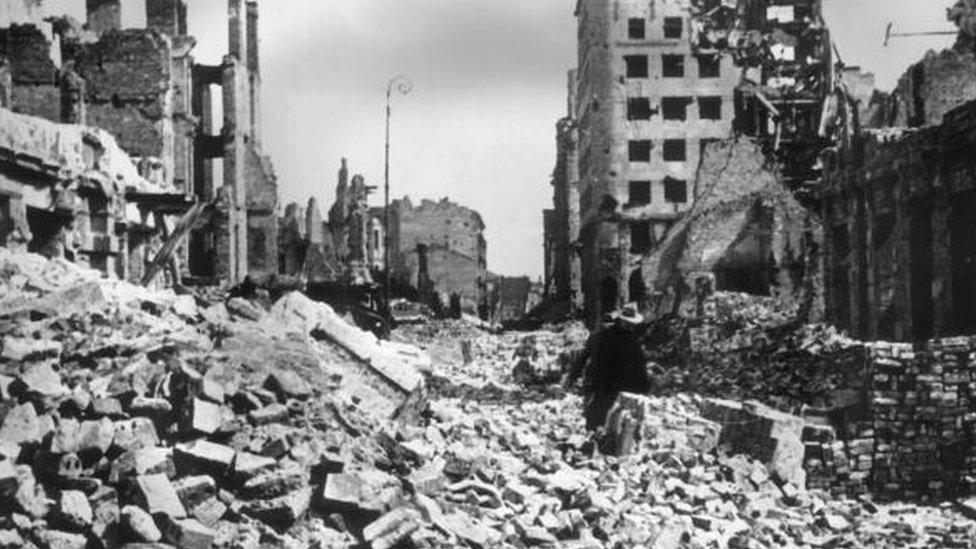
A view of rubble and ruined buildings covering the streets after the German bombing of Warsaw, Poland
At the ceremony, which began shortly after 04:00 (02:00 GMT), a minute's silence was observed in memory of the victims.
Later in Warsaw, international leaders rang a bell of peace and laid wreathes at the Tomb of the Unknown Soldier, a central memorial in the Polish capital.
Who is attending?
In all, around 40 foreign delegations were expected to join the commemorations, according to the Polish presidency. They include German Chancellor Angela Merkel and French Prime Minister Edouard Philippe.
But world leaders including Russian President Vladimir Putin, US President Donald Trump, France's Emmanuel Macron and UK Prime Minister Boris Johnson were not present.
Mr Trump had been due to attend but cancelled the visit abruptly, sending Mr Pence in his place, as the US east coast braced for Hurricane Dorian.
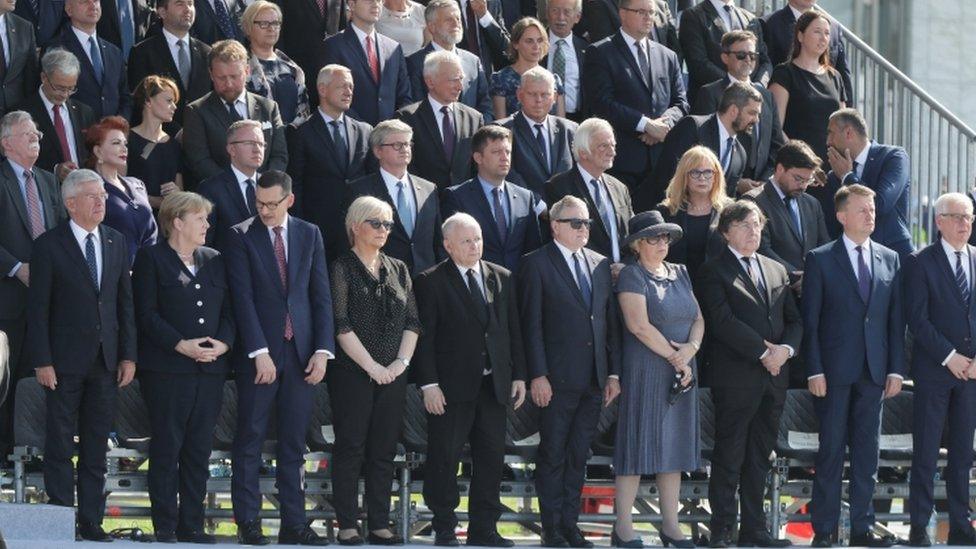
Leaders and officials attend the commemorative ceremony in Warsaw
Mr Putin was not invited, unlike 10 years ago, when he attended commemorations remembering the estimated 600,000 Soviet soldiers killed driving out the Nazis.
But on this occasion, Poland changed the criteria, inviting from Europe only members of the European Union or its Eastern Partnership (which includes six former Soviet countries).
Relations between Russia and Poland, always strained by the legacy of Soviet domination after the war, have plummeted since Russia annexed Crimea.
Maria Zakharova, spokeswoman for Russia's foreign ministry, called the decision not to invite Mr Putin "stupid".
- Published31 August 2019
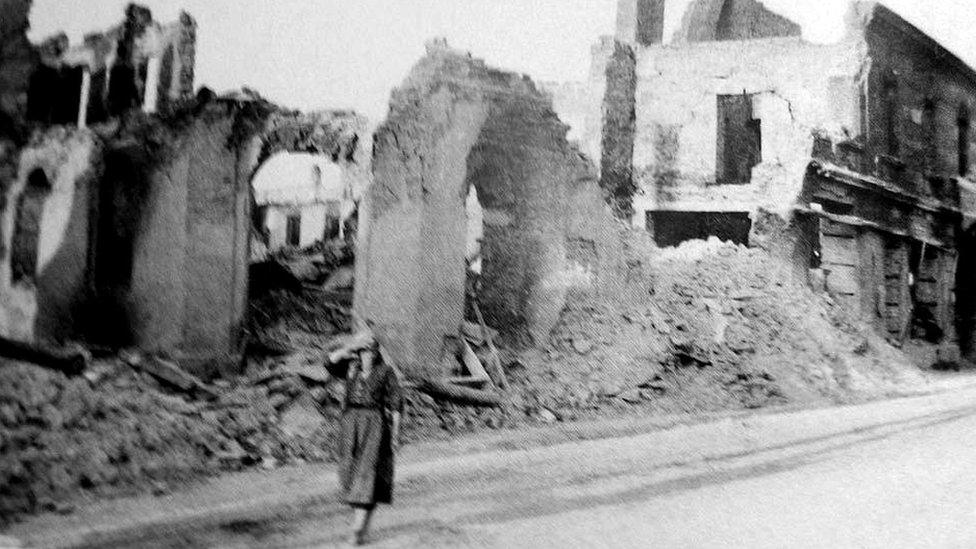
- Published30 August 2019
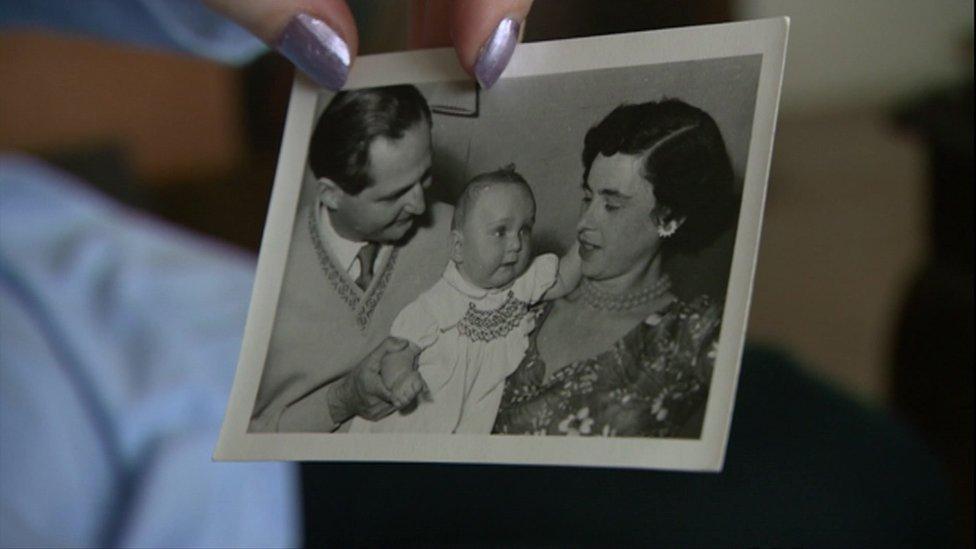
- Published1 September 2019
